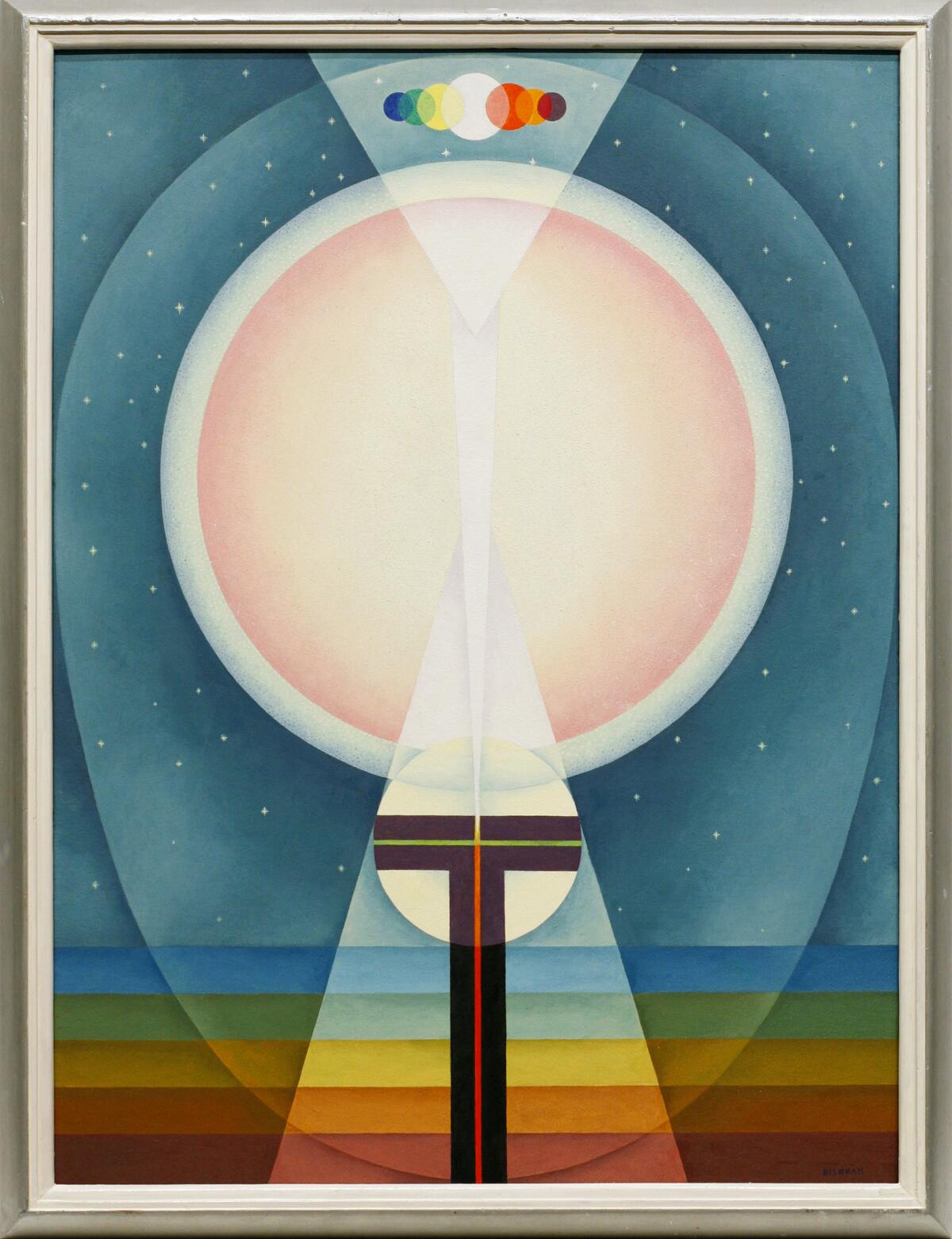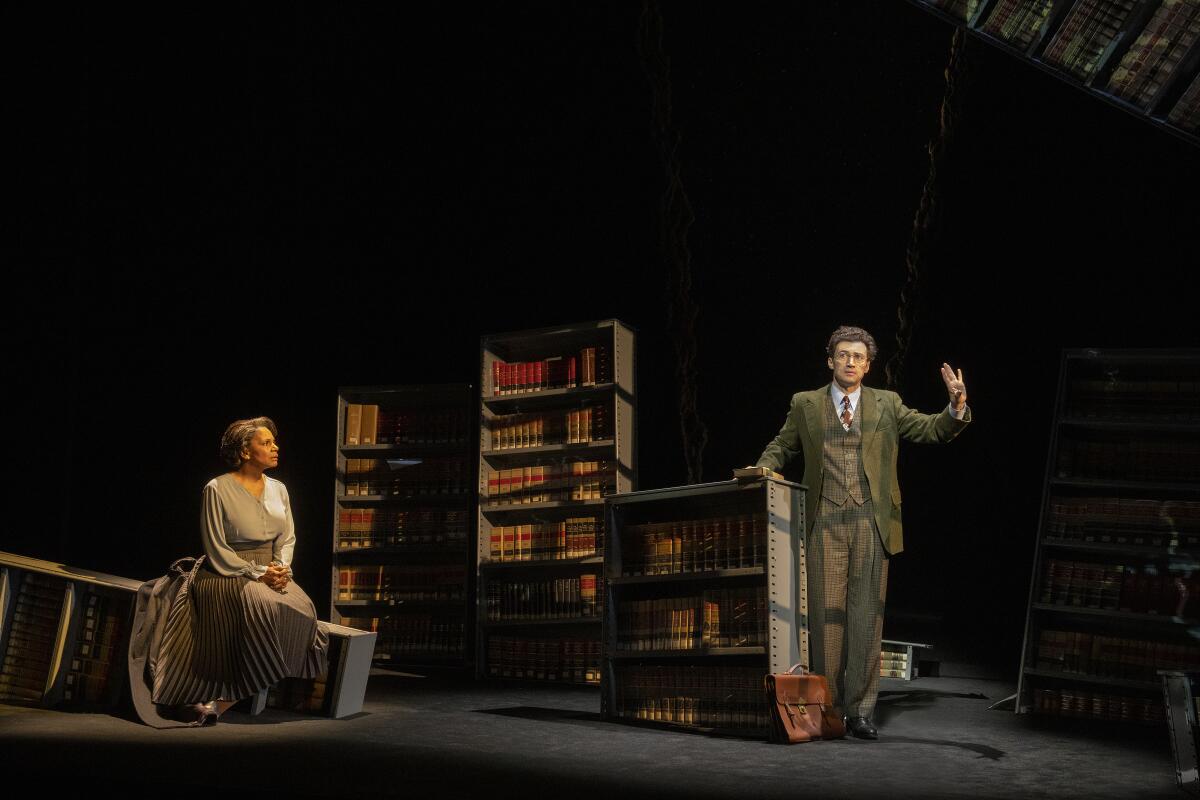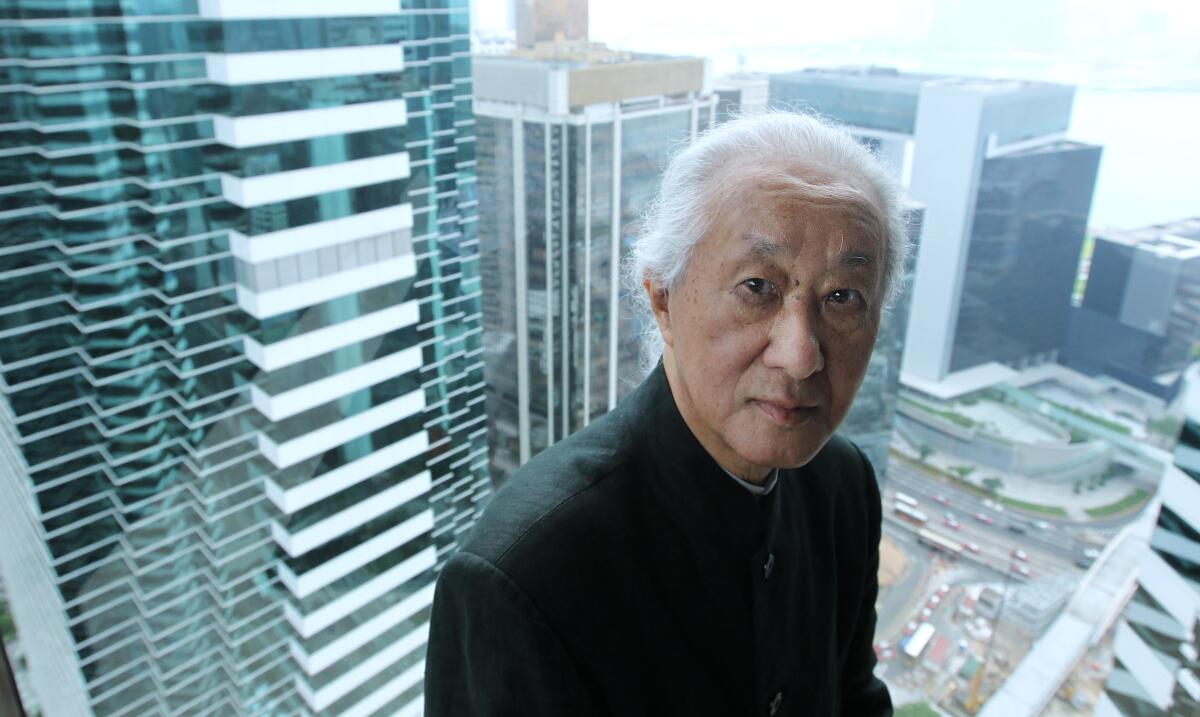I’ve been sucked into a TikTok hole. Here are some faves

- Share via
Welcome to 2023 and Kevin McCarthy Groundhog Week. I’ve been marking the anniversary of the Jan. 6 insurrection by listening to Rachel Maddow’s absorbing podcast “Ultra,” about a ’40s-era white supremacist plot to overthrow the U.S. government that involved sitting members of Congress. (L.A. figures prominently — yikes! — including a La Crescenta Park that was the site of Nazi rallies.) I’m Carolina A. Miranda, arts and design columnist at the Los Angeles Times, and I’m here with all the tawdry history and essential arts news:
Time for TikTok
For months, I’ve been spending my evenings logging onto TikTok and then falling down its algorithmic rabbit hole — absorbed by random scenes (say, a coyote sitting on a car in Arizona), gags about nepo babies and cinematic metaphors for the new year. Because I can’t help myself, I send the weirdest and funniest ones I find to my Instagram stories.
I’ve been curious about why the social media app has been so relentlessly sticky (at a time in which it is also the object of relentless attacks by U.S. legislators). Inspired by Susan Sontag’s “Notes on Camp,” this week I published a series of observations about the app’s aesthetic — or, more accurately, its anti-aesthetic and the false sense of intimacy it provides between users. (You can read the story here.)

Certainly, a big part of what makes TikTok so appealing is that, once the all-knowing algorithm plugs its feelers into your brain, you end up getting content that seemed designed for you. (As I note in the piece, I currently sit at a crossroads of many socially useless Toks — which this week has included some spectacular gags related to the Kevin McCarthy debacle. I’ve also been watching my colleague Lucas Kwan Peterson drink frappucinos.)
This means that on many a night, rather than watching TV, I simply spend an hour scrolling TikTok. And it isn’t the endless scroll that keeps me hooked. It’s the fact that through the app I regularly stumble into comedians and performers who don’t fit Hollywood molds, even though they definitely fit mine. In other words, I can make my TikTok as diverse or as weird as I want it to be. I don’t need to sit around and wait for an executive to give the green light.
Make the most of L.A.
Get our guide to events and happenings in the SoCal arts scene. In your inbox every Monday and Friday morning.
You may occasionally receive promotional content from the Los Angeles Times.
So, herewith, some accounts I find irresistible:
@meditationsfortheanxious: Faux reporter-on-the-street dispatches are delivered in a monotone deadpan and examine different categories of stoner and the underlying roots of the Northface jacket/fade haircut combo. I don’t always get all the Irish gags, but this is definitely better than any anthropological show I’ve ever seen on TV.
@kendria_bland: Imagination does not need big budgets. Bland has very funny skits about cockroaches (in which she plays every roach — with wigs!), time travel stories and she regularly inserts herself into old SpongeBob cartoons in off-color ways.
@blakelythornton: For rapid-fire, often searing cultural commentary on topics such as the Zillennial Brooklyn Girl and the subtext of choosing one hookup/dating app over another. Plus, I deeply appreciate that he ends some of his posts with movie credits.
@yurilamasbella: Her Kardashians spoofs are way more interesting than the Kardashians.
@cannibalmilkshake: Funny takes on many topics, including much design — and Khloe Kardashian’s pantry.
@vibin.wit.tay: Because I am a sucker for a funny dance routine to classical music.
@therealoverloadcomedy: For her endlessly pliable face and the husband jokes.
@hydeordie: This L.A.-based curator is on the art world dish and offers plenty of art world how-tos.
@jake_gotta: In short, easy-to-understand posts, he breaks down the peculiarities of L.A. urbanism.
In the galleries
At LACMA, a new exhibition puts a spotlight on the Transcendental Painting Group, a small group of New Mexico artists who, in the late 1930s, put a distinctive spin on abstraction. “As its name suggests, transcendental painting was a spiritual pursuit — not religious, but spiritual,” writes Times art critic Christopher Knight. “The aim was to register the unadorned soul on canvas, crafting a painting to provide a viewer the opportunity to experience communion with it.”

At Deitch Los Angeles, contributor Chris Campion reports on a sprawling show that gathers the work of Rammellzee, the prolific New York artist who shaped hip-hop and graffiti and ran with ’80s-era stars such as Jean-Michel Basquiat. At the heart of the exhibition are 21 of his Garbage Gods pieces, elaborate outfits that the artist would don for performances.
Frequent Times contributor Leah Ollman recently spent some time with L.A. artist Uta Barth, the subject of a retrospective at the Getty Museum. Barth is part of a generation of artists who have helped push the boundaries of photography — into something that goes beyond representation, capturing shifts in mood, light and perception. The show, writes Ollman, “is an environment, an experience. Quiet, yet assertive, it demands stillness, contemplation, patience.”

Artist Kelly Akashi is also the subject of a museum retrospective — at the San Jose Museum of Art. Contributor Sharon Mizota describes works that blend elements of the body with other natural or handmade objects: “Glass vessels may have breasts, sprout hair or dangle perilously from ropes. A bronze cast of her own hand presses lightly on a deflating glass globe or gingerly cradles a thorny thistle. Candles that suggest body parts or mutant slugs curl across a shelf and transform as they burn.”
Venice-based artist William Tunberg has spent a lifetime perfecting wooden cubes and other objects that employ marquetry in their production. The centuries-old technique assembles pieces of wood veneers, often tinted different colors, to create designs. “Old marquetry takes constant care,” he tells contributor Yusra Farzan. “It’s always cracking and moving around.”
On the stage
Theater critic Charles McNulty has been running around New York City, where he caught productions of “Merrily We Roll Along” and “Into the Woods” — the latter of which will be landing at L.A.’s Ahmanson in June. It was an opportunity to revisit old works with fresh eyes. “Merrily We Roll Along” he finds a production that solves the problems that have long plagued the work. “Part of the excitement of repeat theatergoing,” he writes, “is not knowing how something overlooked might reach deep into your heart and detonate new meaning.”
Enjoying this newsletter? Consider subscribing to the Los Angeles Times
Your support helps us deliver the news that matters most. Become a subscriber.
And since we’re on the subject of New York theater ...
The producers of playwright Adrienne Kennedy’s “Ohio State Murders” recently announced that the Broadway production, starring Audra McDonald, would be closing early — on Jan. 15. McNulty describes this is “a pity” — “because McDonald’s performance in this 75-minute, largely narrated drama is emotionally devastating — something that no McDonald or Kennedy fan should miss.”

Design time
The work of celebrated architectural photographer Wayne Thom is getting the retrospective treatment at the USC Pacific Asia Museum in Pasadena. Contributor Rajvinder Signh reports on an artist whose work helped illustrate L.A.’s key works of Modernist architecture from the latter half of the 20th century: homes by A. Quincy Jones, William Pereira‘s skyline defining Transamerica Pyramid in San Francisco and the gleaming Bonaventure Hotel by John Portman & Associates.

In the meantime, I read 27 lbs. of comics to bring you this review of Los Bros. Hernandez’s “Love and Rockets” box set, which gathers the first 50 issues of the venerable comic book. How does it hold up? As I note, “Many of the stories feel as fresh and as strange as they did in 1982, when Fantagraphics first republished a D.I.Y. comic created by a crew of brothers from Oxnard.”
Moves
Rachel Jans has been named associate curator of modern and contemporary art at the San Diego Museum of Art . She joins the museum from SFMOMA.
Passages
Over the holidays, Japanese architect Arata Isozaki, best known in the United States for his design of MOCA’s Grand Avenue building, died at the age 91. I have a look at how that career-defining building almost didn’t happen.

Vivienne Westwood, a fashion designer whose roots lay in punk, but later became a go-to designer for the Hollywood set, has died at 81. Costume designer Jenny Beavan talks about what made her work so inspirational: “You certainly knew it was her because it was so way out there, but it wasn’t just one thing. She had an amazing range.”
Sharon Lockhart pays tribute to fellow artist Silke Otto-Knapp, who died last year.
Michael Snow, a polymath artist who played music, created sculpture and is known for his experimental film “Wavelength,” is dead at 94.
Archaeologist Oscar White Muscarella, who helped prove that many objects held within the collections of the Met were looted or fake, is dead at 91.
Henry Grossman, a photojournalist known for his images of political figures — and the thousands of candids he took of the Beatles — has died at 86.
Bridgette Wimberly, a playwright who created works about abortion and an opera inspired by Charlie Parker, is dead at 68.
In other news
— How 2022 became the year of the fragmented-identity novel.
— I’m here for all the Colm Tóibín profiles.
— My colleague Gustavo Arellano on how statues of Mexican heroes have been disappearing from a Lincoln Heights park.
— Before entering Kevin McCarthy Punching-Bag Purgatory, Congress was looking into ways to remove Architect of the Capitol Jeff J. Blanton, who has been accused of misrepresenting himself as a law enforcement agent and misusing his government vehicle.
— The Washington Post has an analysis of all the Confederates and enslavers depicted in works of art in the U.S. Capitol.
— A felled statue of Robert E. Lee in Richmond, Va., will be replaced with a monument to Henrietta Lacks.
— Martin Filler has an intriguing, surprising look at the roots of Art Nouveau.
— And Greg Allen has an equally absorbing piece on the history of Mormon temple architecture.
— Somebody please put me on a plane to Colombia so I can check out the work of architect Rogelio Salmona.
— The pandemic forced some cities to turn streets into car-free spaces. Here is a list of some that will remain.
— Aaaaand, here are the proposed designs for L.A.’s new bus shelters — by Skidmore, Owings & Merrill, in collaboration with Tranzito and Vector Media.
And last but not least ...
The biggest entertainment stories
Get our big stories about Hollywood, film, television, music, arts, culture and more right in your inbox as soon as they publish.
You may occasionally receive promotional content from the Los Angeles Times.




